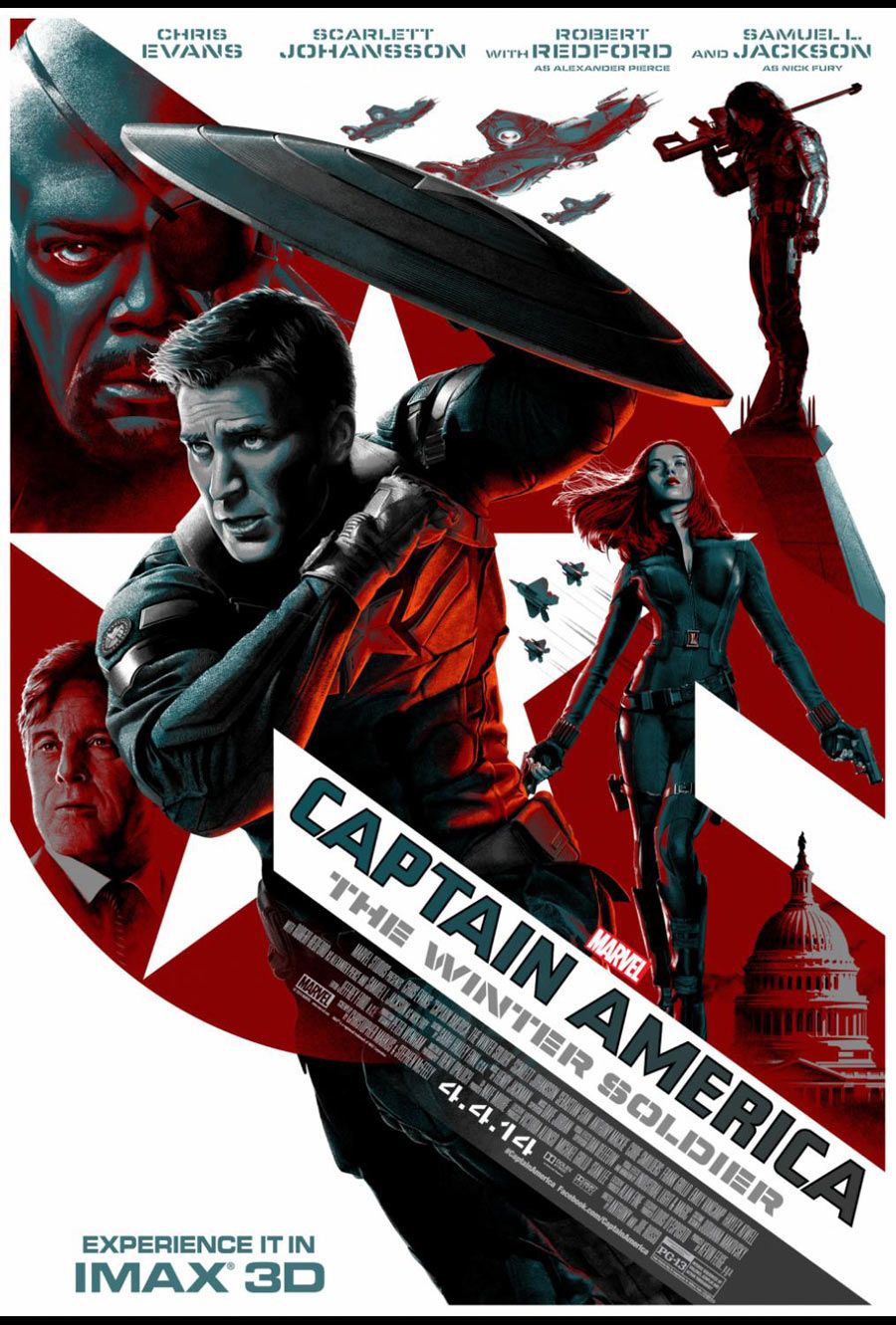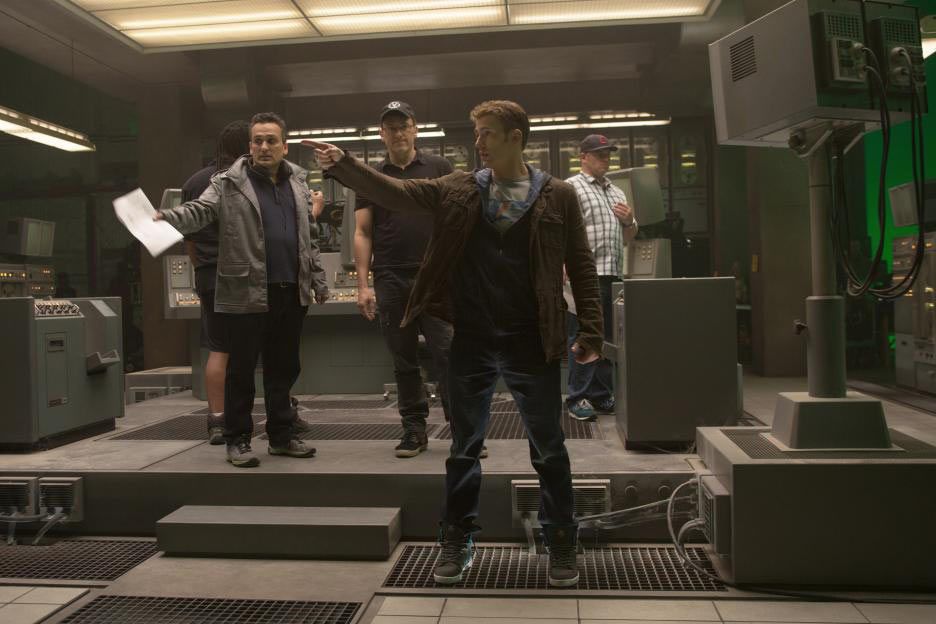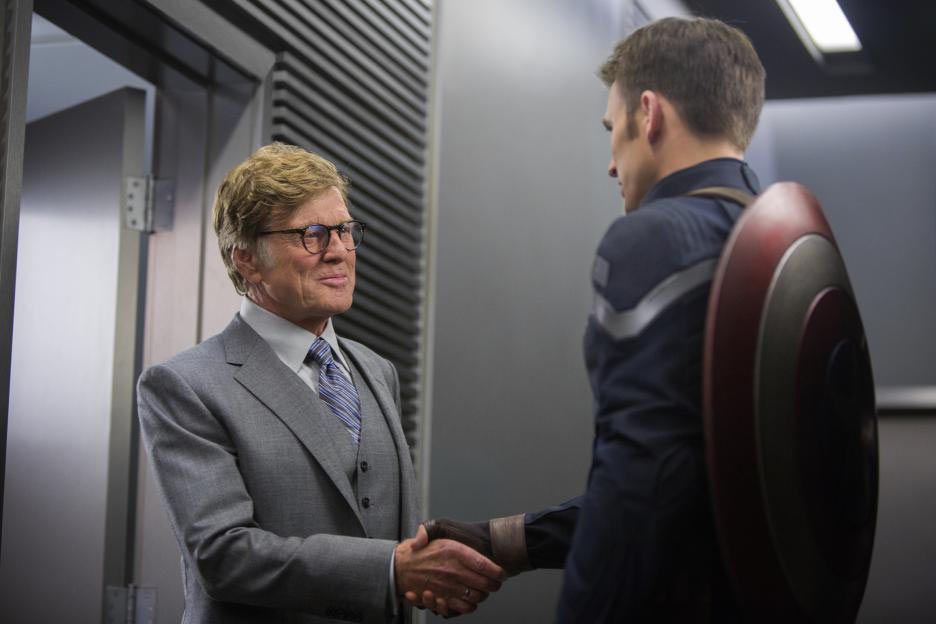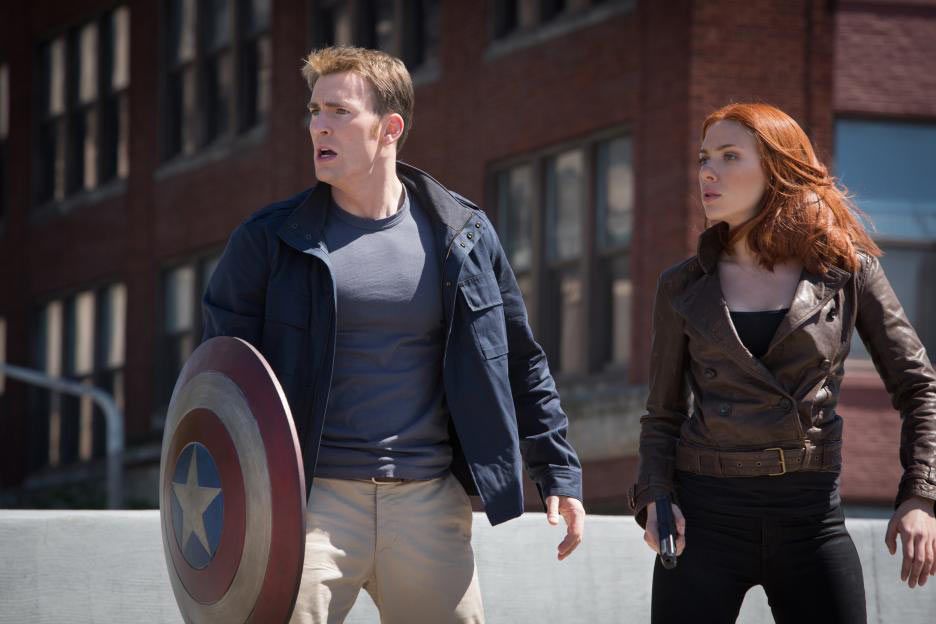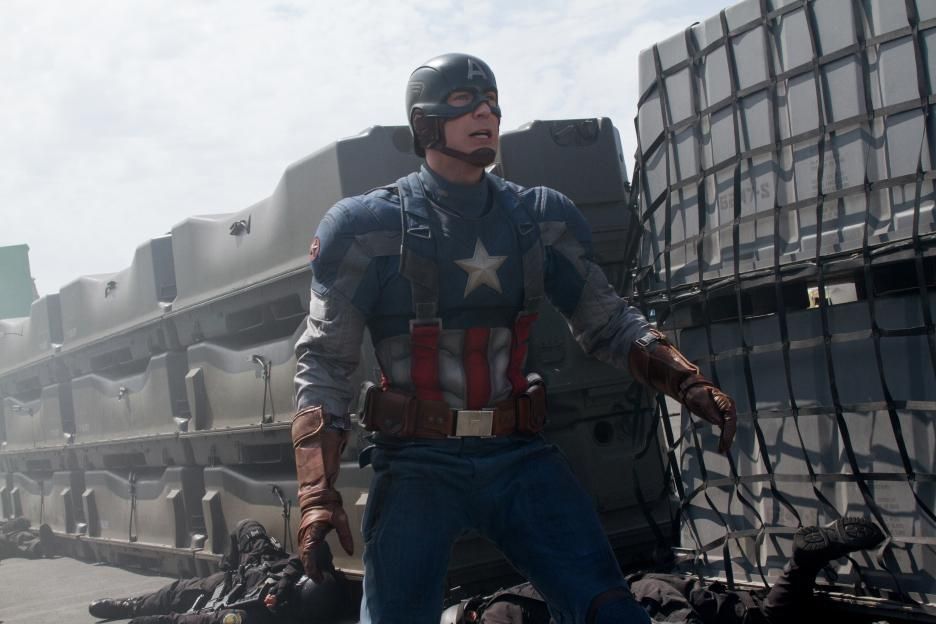Marvel Studios president Kevin Feige has overseen the wildly successful Marvel Cinematic Universe since its inception. Yet much like the comic books that inspire the films, Marvel Studios is looking to bring about some big status quo changes with their latest motion picture event, "Captain America: The Winter Soldier," debuting in stateside theaters tonight.
Drawing heavily from Ed Brubaker and Steve Epting's 2005 "Winter Soldier" story in the "Captain America" comic book series, the film not only reintroduced Bucky (Sebastian Stan) as brainwashed assassin The Winter Soldier, it also, as previewed by the trailers, explores major trust issues between Captain America (Chris Evans) and S.H.I.E.L.D., the peacekeeping organization at the center of the MCU.
RELATED: Anthony MAckie Talks "Captain America 2," Pitches His "Cap 3" Idea
CBR News spoke with Feige at last month's "Winter Soldier" press junket in Beverly Hills about what Marvel Studios was looking to say with this latest installment, the major role the film plays in setting up 2015's "Avengers: Age of Ultron," the directing team of Joe and Anthony Russo and casting Robert Redford as Alexander Pierce. Check back with CBR early next week for the second part of our Feige interview on "Winter Soldier," delving into some serious spoiler territory.
CBR News: Kevin, each of these post-"Avengers" movies have done something very different, which seems very deliberate -- there was something specific you wanted to do in each one. What were the major things you wanted to accomplish and say with "Captain America: The Winter Soldier"?
Kevin Feige: There are a lot of things. First and foremost, finally we have the time to focus on a Steve Rogers man-out-of-time story. We touched on it in the very last scene in his first movie, a little bit in "Avengers," but really "Avengers" was just about the chaos and the imminent disaster and the world-saving. So we wanted to focus more on him being a man out of time. And what does that traditionally mean? It doesn't mean, "How does this cell phone work?" He's not an idiot. What it really came down to was, does he feel he belongs in this world? The conflict of morals. "The organization I'm working with now -- do they have the same ideals that I do?" The genius of Stan Lee and Jack Kirby of bringing Cap out of the ice in "Avengers" #4, and also I guess the luck of timing that then thrust him into the '60s and into the Watergate era, and into all of those storylines where he's questioning his loyalties -- not to the country, not to the ideals that he believes it represents, but to the people in charge. The people that are currently making the decisions. That's always great.
We knew we wanted to do that, and we knew we weren't going to do it with the Army of the U.S. government. We wanted to do it with S.H.I.E.L.D., because that was the organization that was set up quite well. While we were sending Tony back to Malibu for "Iron Man 3," and sending Thor back to Asgard and the Nine Worlds for "The Dark World," Steve was the one that we said, "He's going to be with S.H.I.E.L.D." When we decided that, we knew this could be a very big movie between "Avengers" and ["Avengers: Age of Ultron"]. "Iron Man 3" and "Thor" in some ways were specifically made to be apart from that -- to focus on the individual characters. We wanted to do both. Focus of course on Steve, but also put him in the world of the Avengers, and change it drastically. So the events of this movie impact where we meet everybody in "Age of Ultron."
RELATED: Russos Bring "Arrested Development" Lessons to "Captain America: The Winter Soldier"
Given that most of their experience has been with television comedy, the Russos were definitely an outside the box choice to direct "Winter Soldier." How much does Marvel Studios take pride in these unconventional decisions? It's been seen with both casting and directors.
We have the luxury of being able to hire people that we want to hire, and people that we believe will be very collaborative with us -- because a Marvel movie is very producer-driven, and very collaborative. I've always said, we hire people not based on necessarily the big, giant visual effect thriller movie they've done before, but the big, giant summer action Marvel movie that we believe they can do; that we believe they have in them. It makes us very pleased a) when the movie turns out well, and b) when every other studio in town begins to want to hire them, when before they perhaps weren't on the radar.
Robert Redford is in "Winter Soldier," and Michael Douglas is co-starring in "Ant-Man" -- casting has always been strong in Marvel movies, but it's safe to say a few years ago people wouldn't expect to see those actors in a superhero, comic book-based movie. How much of a compliment do you see that to the work that you've been doing over the past few years?
I think it's a compliment. The truth is, look at Marlon Brando in "Superman," look at Jack Nicholson in Tim Burton's "Batman."
There's a precedent there.
But when you get a call saying, "Oh, hey, Robert Redford's interested in maybe doing something with us -- do you have anything?" That in and of itself is great. When the timing worked out that not only did we have something, we had the perfect thing -- just great timing.
It means a lot to us, but we take it very seriously. We know that the reason they call, and the reason they come in, is they can go, "Hey, I want to be in a movie that a lot of people see, and is a popular genre now, and I trust you won't make me look silly." We then make every decision to try to make everything as great as it can possibly be.
Marvel Studios has claimed three upcoming release dates for as-yet unrevealed films -- will there be more news on that in the near future? Next few months?
I hope so. I certainly think in the next few months, that'll come into view.
Stay tuned to CBR News early next week for the second part of our discussion with Kevin Feige about "Captain America: The Winter Soldier" and the future of Marvel Studios.


